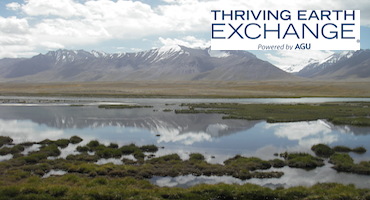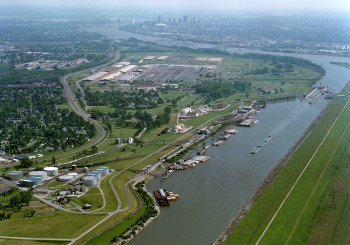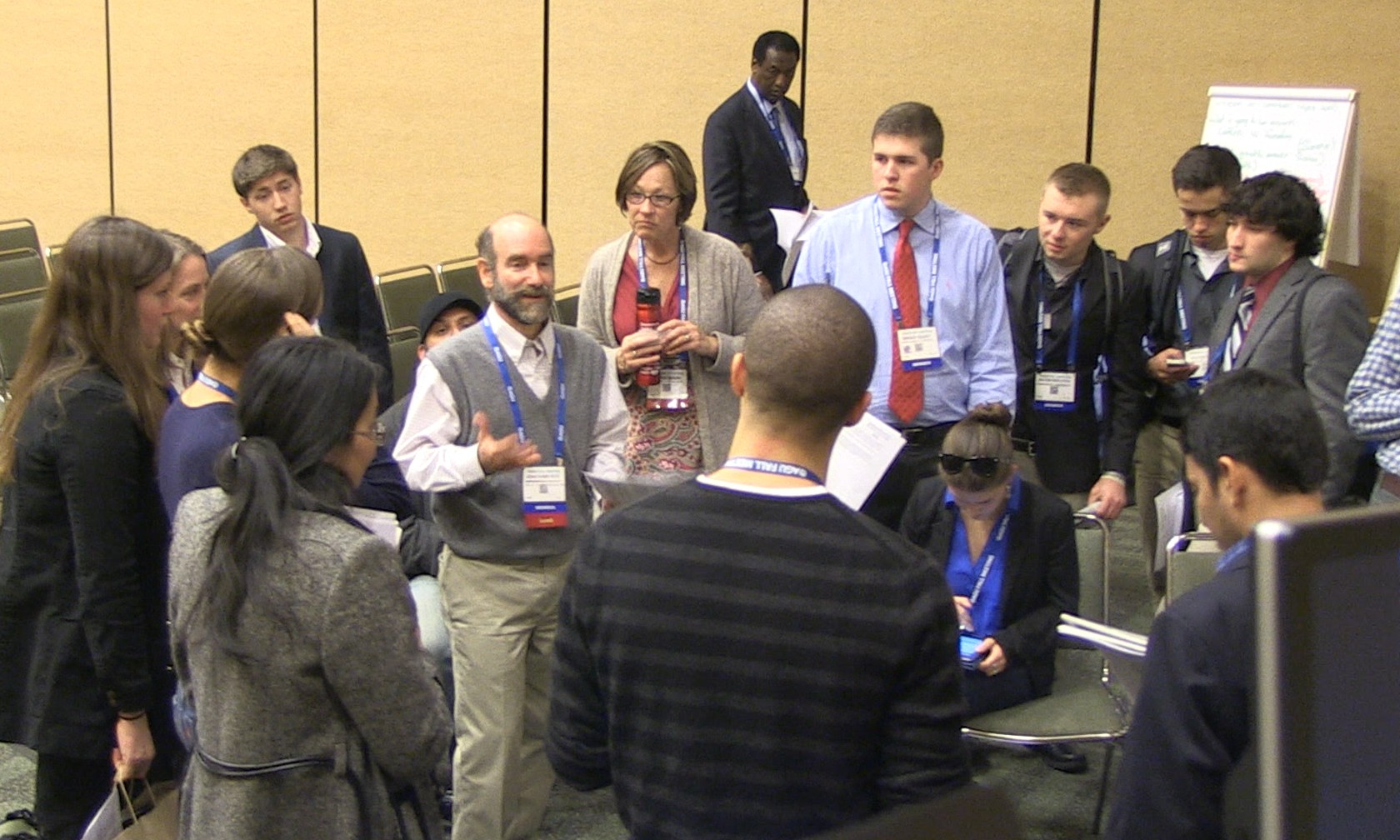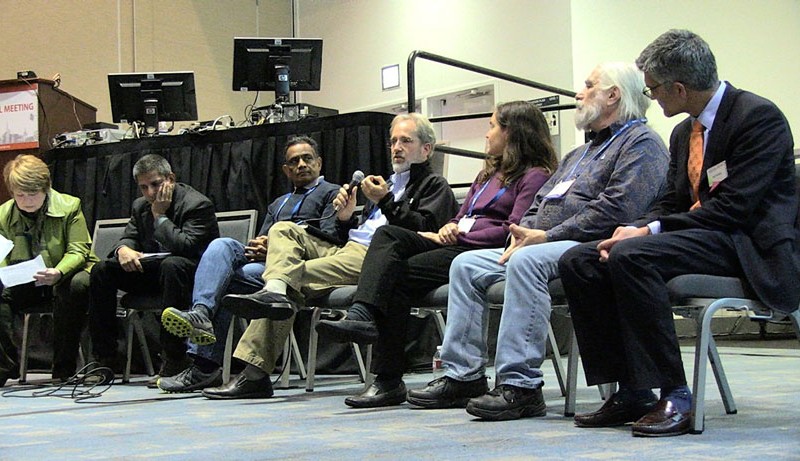AGU – Thriving Earth Exchange
The American Geophysical Union (AGU) has 62,000 scientist members. AGU launched its new Thriving Earth Exchange (TEX) program recently. Its list of projects is growing rapidly to address the need for Earth Science expertise to support civic decisions and local planning for climate change, natural hazards and natural resources.
 The Thriving Earth Exchange (TEX) provides a bridge between AGU scientists and local communities tackling issues of climate change, natural hazards and natural resources to co-design solutions that equitably integrate scientific and community knowledge. To achieve this ambitious goal, TEX is partnering with a range of organizations, including the Rockefeller Foundation’s 100 Resilient Cities Initiative, ICLEI USA, MIT’s Climate Colab, and others. TEX works with these partners to help communities define their goals, develop specific projects, and connect community leaders with appropriate scientists, offering tools to support their collaboration and innovation. In the Pamir Mountains of Afghanistan-Tajikistan TEX is using climate data to help local farmers adapt their agricultural calendars. Other international projects range from Sri Lanka to Ethiopia and exemplify how TEX is expanding the frontiers of collaborative research.
The Thriving Earth Exchange (TEX) provides a bridge between AGU scientists and local communities tackling issues of climate change, natural hazards and natural resources to co-design solutions that equitably integrate scientific and community knowledge. To achieve this ambitious goal, TEX is partnering with a range of organizations, including the Rockefeller Foundation’s 100 Resilient Cities Initiative, ICLEI USA, MIT’s Climate Colab, and others. TEX works with these partners to help communities define their goals, develop specific projects, and connect community leaders with appropriate scientists, offering tools to support their collaboration and innovation. In the Pamir Mountains of Afghanistan-Tajikistan TEX is using climate data to help local farmers adapt their agricultural calendars. Other international projects range from Sri Lanka to Ethiopia and exemplify how TEX is expanding the frontiers of collaborative research.
 TEX matches scientist specialists with citizen science communities that need scientific guidance, breaking down the “town vs gown” barrier that has traditionally separated some ivory towers from the challenges of their local communities. Granite City, pictured here, is one early town project. TEX connects scientists, community leaders, and sponsors, enabling them to work together to develop solutions, primarily focused on developing early warning capacity to address the secondary impacts of climate change. TEX announced in October a Water Partnership to empower local communities worldwide to manage their water resources.
TEX matches scientist specialists with citizen science communities that need scientific guidance, breaking down the “town vs gown” barrier that has traditionally separated some ivory towers from the challenges of their local communities. Granite City, pictured here, is one early town project. TEX connects scientists, community leaders, and sponsors, enabling them to work together to develop solutions, primarily focused on developing early warning capacity to address the secondary impacts of climate change. TEX announced in October a Water Partnership to empower local communities worldwide to manage their water resources.
The City of Oakland is one of the AGU-TEX model projects, also named a Resilient City. Victoria Salinas was appointed Oakland Chief Resilience Officer (CRO). She will lead Oakland to plan, prepare for, and mitigate both acute disasters and long-term challenges, such as rising sea levels. She will be responsible for implementing the Oakland 2012 Climate Action Plan.
 Oakland is working with ICLEI, founded in 1990 as the International Council for Local Environmental Initiatives, now known simply as Local Governments for Sustainability.
Oakland is working with ICLEI, founded in 1990 as the International Council for Local Environmental Initiatives, now known simply as Local Governments for Sustainability.
ICLEI Global is an international association of local governments, national and regional local government organizations that have made a commitment to sustainable development. ICLEI has its US Headquarters in Oakland, which faces its share of challenges, from California’s ongoing drought, to earthquakes to concern about sea level rise.
The Thriving Earth Exchange advances citizen science by providing tools to design and launch a range of projects to develop early warning systems to address secondary effects of climate change, including drought, sea level rise, food and water shortages, fires, storm surge preparedness, and resilient systems to cope with unpredicted emergencies. The question, “What forms of learning media can raise individual and social network awareness?” is followed by setting benchmarks to assess progress of a community-driven learning process, developing templates for cross-project knowledge-sharing and “experiential learning,” testing multiple alternative methods to present and visualize information, and argument design.
When the AGU (American Geophysical Union) Board and Council decided to launch the Thriving Earth Exchange (or TEX), they brought in Rajul (Raj) Pandya, to be Director of TEX. The Denver, Colorado program he had started while at NCAR (National Center for Atmospheric Research) to test low-cost approaches to measuring hazardous chemicals that enter homes though basements (e.g. PCE and Radon) became one of the first four successful AGU TEX pilots. This pilot has had significant implications, reducing the cost of monitoring a home from $100 to $8, making monitoring more accessible for many communities. Data collected in Denver will support extension of that pilot to widespread remediation in many cities. Following that example, the AGU TEX concept is to initiate pilots and to scale up from the most successful pilots, using them as exemplars to grow TEX problem-solving networks. In this way new projects in the network can draw lessons from pilot projects, expanding successes into a network with global reach.


